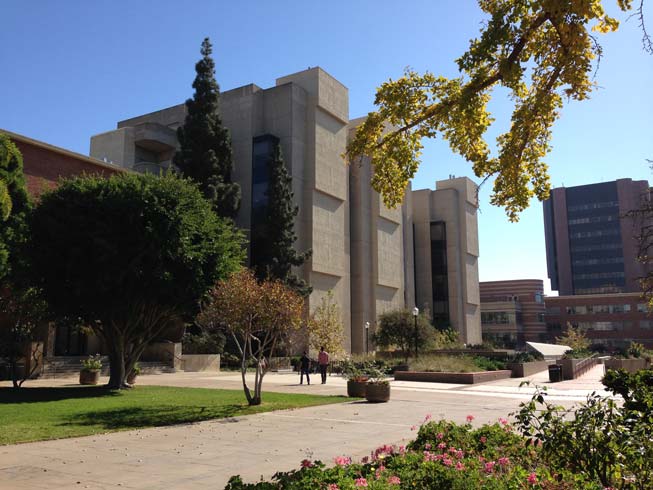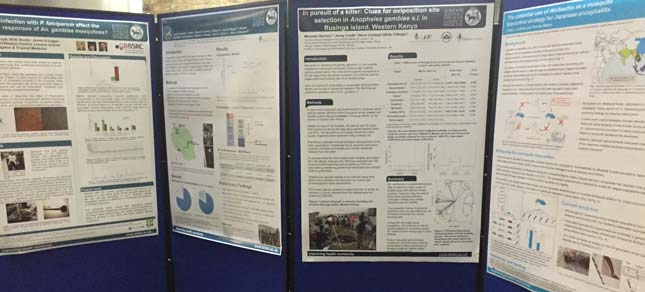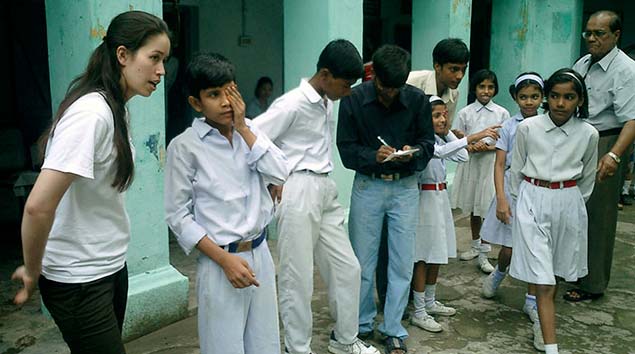In our constantly evolving healthcare environment, physicians with interdisciplinary skill sets are becoming increasingly valuable. Those graduating with dual degrees such as an MD/MPH are uniquely poised to tackle some of healthcare’s most pressing challenges, which include disparities in access to care, high costs, and controversial reform.
How Can an MPH Help You as a Physician?
MD/MPH programs lie at the intersection of patient-based medicine and public health. According to the UNC School of Medicine, the MPH provides a broader social context and a focus on improving quality of care. Those pursuing this degree are often seeking a role beyond patient care, which could include policy-making, disease prevention, health education, or health research.
According to Dr. Judith Green McKenzie MD-MPH, Professor of Emergency Medicine at the University of Pennsylvania Perelman School of Medicine, the value of the MPH lies in its ability to expand a physician’s perspective:
“The physician is not only able to take care of one patient at a time but can also use the knowledge gained from the data available to implement changes that would affect the patient population as a whole. This is important towards preventive measures. The impact is not just local (one patient) but global (many patients).”
Potential Career Paths
There is a broad array of career paths associated with the MPH degree that span public policy, private industry, research and community outreach. According to Brown’s PLME program (Program in Liberal Medical Education), these include the following:
- International work
- Environmental health, such as regulation of toxic elements in water
- Behavioral health: diversity across populations; ethnic/racial group behaviors
- Health promotion and disease intervention
- Health management
- Community outreach and serving the underserved
- Working with the CDC: regulation of health policy and health education
- Public policy: federal and state government
- Special population groups, such as aging and gerontology, maternal and child health
- Private industry, including epidemiology, pharmaceuticals, health education
- Research
Practitioners with a combined training in medicine and public health can treat individual patients while at the same time contributing to public health discourse. Dr. Christina Tan, MD-MPH, Assistant Commissioner for Epidemiology, Environmental and Occupational Health for New Jersey, serves as the top epidemiologist for the state. Last fall, she had the responsibility for assessing the readiness of New Jersey to handle the possibility of Ebola. With regard to her training, she says:
“The MPH program helped solidify and enhance my understanding of epidemiology and public health policy, as it’s important to have an understanding of the historical, legal, and scientific context of public health practice (which is very different from clinical work).”
Differences in MD-MPH Programs
It is essential for prospective students to compare programs in order to find the right one for their specific interests and goals. According to the Association of American Medical Colleges (AAMC), more than 80 medical schools sponsor activities to help students pursue an MPH. These range in structure from the fully integrated program offered by the University of Pennsylvania Perelman School of Medicine, which houses both the MD and MPH programs within one professional school, to the combined MD-MPH program offered by Yale University School of Medicine and Yale School of Public Health, to Duke University School of Medicine’s partnership with the University of North Carolina’s Gillings School of Global Public Health. These programs differ greatly in their curriculum, concentrations, length and cost
Concentrations
Make sure to check out whether the program includes concentrations that match your interests! For example, whereas Boston University’s curricular program is flexible, offering concentrations ranging from environmental health to health policy and management, New York University’s MD/MPH degree strongly emphasizes a global health perspective.
Many MD/MPH programs offer standard concentrations such as public health, global health, maternal and child health, and epidemiology. But if you are interested in less conventional specialty areas, do some research to find appropriate programs. For example, the Harvard T.H. Chan School of Public Health offers Law and Public Health, Columbia University’s Mailman School of Public Health offers Biostatistics and BU offers the interdisciplinary concentration of Health Law, Bioethics and Human Rights. Tufts University’s School of Medicine Public Health Program takes a different approach, offering a generalist MPH degree without any concentrations.
Location
You may want to consider the state in which you ultimately want to practice, so that you can begin to make contacts with nearby related organizations. Or perhaps the location has value for other reasons, such as wanting to stay close to home or in a particular region of the country. For example, New York has 10 MD-MPH programs, including SUNY Downstate, Einstein, Columbia, Mount Sinai, NYU and University of Rochester. On the other hand, some states such as Alabama, Oklahoma and Wisconsin, have only one MD-MPH program, part of the state system.
Length of Program
Combined MD-MPH programs last either four or five years. The typical model for 5-year programs is to complete the MPH between the 3rd and 4th years of the MD program, as at Boston University, Columbia and Harvard. Several schools offer a 4-year option through a more condensed approach that includes the three summers between academic years. At SUNY Downstate, you can complete coursework over three summers; at the Keck School of Medicine at USC, you use three summers to complete a 150-hour practicum. The University of Miami Miller School of Medicine has a fully integrated program that culminates with a capstone field experience of 300 contact hours. In choosing where to pursue your MD/MPH, therefore, it is important to consider your willingness to interrupt your medical training, as well as your ability to balance the demands of an accelerated program.
Cost
The cost of adding this additional degree may also be an influential factor, yet financial assistance opportunities and discounted tuition are quite common. At Feinberg School of Medicine, the cost of an MPH is simply a surcharge on top of the standard medical school tuition. Other schools, such as Tulane, offer their MD/MPH students both merit-based and research-based scholarships.
When to Attend
The experience of undertaking a Masters in Public Health varies greatly, depending on how you time your work experience. You could undertake a dual MD-MPH, or you could receive your MD degree and subsequently obtain an MPH immediately or after working. Yet another option is to “intercalate” a Master of Science degree in the UK in the midst of your MD program. The London School of Hygiene and Tropical Medicine offers an outstanding one-year MSc program that students can take between their third and fourth years of medical school. Thirteen MSc courses are available, such as Global Mental Health, Nutrition for Global Health and Public Health in Development Countries.
Dr. Tan elaborated in an email about the pros and cons of attending an MPH program before or after work experience: “Because I got my MPH about 10 years after my MD degree (and after working at governmental public health agencies), I wanted to use the MPH as a way to “fill-in-the-blanks” regarding what I was already doing in my work.”
|
TIMING |
PROS |
CONS |
| PRE-WORK |
|
|
| POST-WORK |
|
|
When to Apply
MD/MPH programs can also differ in a number of other ways, including when you would actually apply. At some schools, such as SUNY Downstate and USC, prospective students apply for the dual degree as they are applying for medical school admission. Others, such as NYU, encourage you to apply once you have already matriculated. Still others, such as UMDNJ-Robert Wood Johnson Medical School and UMDNJ-School of Public Health, offer the opportunity to add the MPH degree after extending acceptance letters for the MD degree. In addition, there is always the option to apply years after receiving your MD degree and practicing medicine.
Is the MD/MPH Right for You?
To successfully navigate our complex healthcare environment, the AAMC cites the natural and essential overlap between medicine and public health. But despite the prevalence of MD/MPH programs, not every medical school offers one, and not every student interested in public health will pursue one. Additionally, today’s aspiring physicians will likely receive some public health education regardless of whether or not they are involved in an MD/MPH program. Many medical schools – often in addition to offering an MD/MPH – have now integrated public health concepts into their standard curriculum. Recent policy initiatives such as the Affordable Care Act, with its emphasis on preventive care and population health, further underscore the need to effectively integrate these two disciplines.
Depending on your personal interests and professional goals, an MD/MPH might very well be the right path for you. It is not only a decision about whether or not to pursue this dual degree, but also a matter of which institution provides the best fit. Check out the resources offered by the American Medical Student Association (AMSA) MD-MPH resource guide and the Association of Schools of Public Health.
Choosing to pursue an MD/MPH is a complicated process that varies greatly for different individuals. For more guidance, contact Collegiate Gateway – we’re always happy to help.




